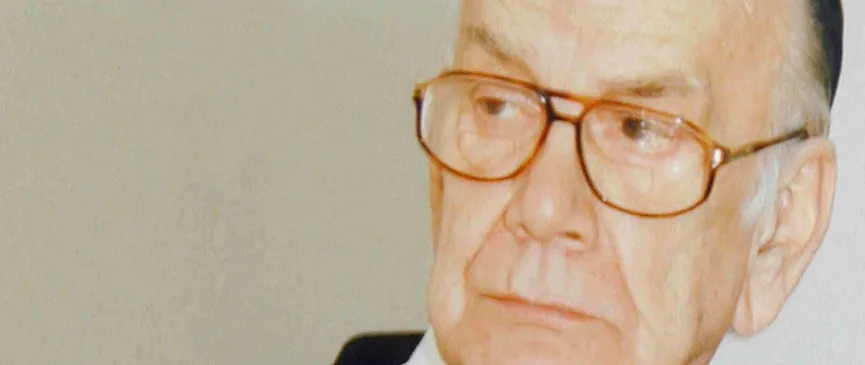Main content
Camilo José Cela Prince of Asturias Award for Literature 1987

Camilo José Cela (Iria Flavia, La Coruña, Spain, 1916 - Madrid, Spain, 2002) Nobel Prizewinner for Literature, to a Spanish father and English mother, at nine years of age his family moved to Madrid. At twenty he wrote his first book of verse, Pisando la dudosa luz del día. He started three university degrees, finishing none of them - medicine, philosophy and law - and declared himself proud to have had teachers such as Pedro Salinas. He was a doctor honoris causa of more than twelve universities.
Cela´s first prose work, La familia de Pascual Duarte, was published in 1942 a was at that time a genuine literary scandal, marking a permanent milestone in Spanish literature which made the author into the most important Spanish writer of post-war Spain. With the passage of the years it has become the most widely translated Spanish book since Don Quixote. He later wrote Pabellón de reposo (1943), a work marked by lyrical existentialism and inspired by his time in a tuberculosis sanatorium, and Nuevas andanzas y desventuras del Lazarillo de Tormes (1944), a witty updating of the Spanish classic of picaresque literature. Cela reaped another great success in 1951 with La colmena, a novel which describes life in Madrid during the first, sad years after the Civil War. More than three hundred characters parade over its pages, connected by the common denominator of distressing mediocrity. This was followed by Mrs Caldwell habla con su hijo (1953), La catira (1955), with which he won the Critics´ Prize, Tobogán de hambrientos (1962), Izas, rabizas y colipoterras (1964), Nuevas escenas matritenses (1966) and San Camilo 1936 (1969). In 1973 he published Oficio de tinieblas 5, his most experimental and obscure work. In 1957 he has been a member of the Royal Academy of the Spanish Language, which he entered giving a lecture on the literary work of the painter, Solana, and in 1977 he was appointed Senator by royal resignation in the first "Cortes" (parliament) of the democracy.
With Mazurca para dos muertos he won the National Literature Prize in 1986. Cristo versus Arizona, published in 1988 was an epic poem, in sarcastic, terrible, hard prose. Others books are El asesinato del perdedor y La cruz de San Andrés (Planeta Prize), both written in 1994, and Madera de Bo (1999).
Cela has also written admirable travel books, in which he has produced passages of vigourous picturesqueness and telling descriptions of landscapes, places and individuals. Among these are Viaje a la Alcarria (1948), Del Miño al Bidasoa (1952), Cristianos, moros y judíos (1956), Primer viaje andaluz (1959) and Viaje al Pirineo de Lérida (1965).
La familia de Pascual Duarte and La colmena have been made into films, the former directed by Ricardo Franco and the latter by Mario Camus.
The master of an inimitable style, classic and modern at once, Cela has created a rich work of great importance, with daring, violence and confidence, yet full of compassion and human warmth. He has renewed and revitalised the Spanish language, perhaps like no other this century, and stand without doubt among the great creators in Spanish, together with Cervantes, Góngora, Quevedo, Valle-Inclán or Lorca.
In 1989 he was awarded the Nobel Prize for Literature "for being the most outstanding figure of Spain´s literary renewal, and for his rich, intense prose, which with controlled passion paints a provoking vision of the helplessness of the human being." Since then has come a string of tributes and displays of recognition of someone who is by now the most universal of Spain´s contemporary writers.
End of main content
